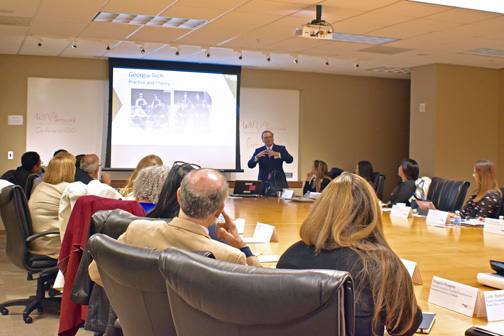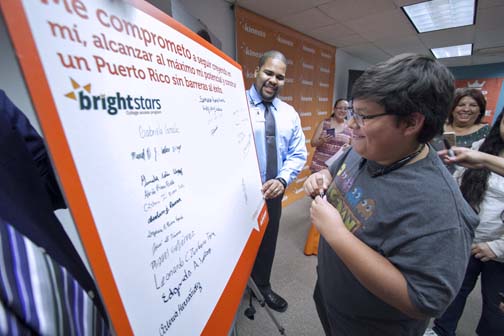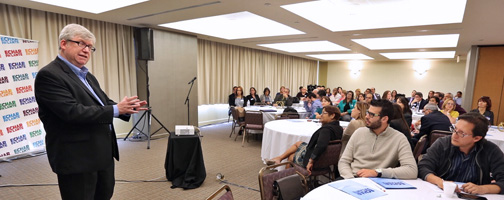Puerto Rican Georgia Tech scholar urges evaluating future of college education

Educating for a generation that will have 10 to 15 jobs or careers in their lives and who in five years will have access to jobs that do not exist today is a challenge that universities currently face, Rafael Bras, a noted scholar who currently serves as provost and vice president of Academic Affairs at Georgia Tech, believes.
Bras, a Puerto Rican engineer, was
the guest speaker of the “The future of college education,” conference at
Sacred Heart University where he presented a report entitled “Deliberate Innovation, Lifetime Education” before a large
group of academics, including presidents, rectors and deans from several public
and private universities in Puerto Rico.
The report is the product of a
working group composed of academics, students and staff at Georgia Tech, in
which they analyze the environment academic institutions face and the need to
amend curricula, teaching methods and academic offerings to survive in the
future.
“We must have a
forward-looking view of education. For example, if you think about education 25
years from now, you have to multiply the knowledge by a factor of five. That
means we must think about how this education will be in 125 years, which is the
equivalent change seen in knowledge,” said Bras.
Another aspect he expanded upon
is that the future of higher education lies in the ability to surround itself
with people with the ability to build a strong and committed university
culture. For example, he noted that the transformation of the academic process
is directly linked to the evolution of technology. This, he said, places the student
and innovation as the protagonists of the instructional process.
“We must be prepared to
educate a generation that will have between 10 to 15 jobs or careers in their
lives. That gets its information through social networks and lives in a digital
world,” he added.
Bras emphasized the need to change
the structure of education as a lifelong project.
“If we do not ask the
right questions at the right time we take the risk of being obsolete,” he
said.
For his part, Sacred Heart
University President, Gilberto J. Marxuach-torros noted that the presentation validated
the changes being made by the institution he heads, looking to temper it to the
new reality of the education system.
“For us it was important
to share this knowledge with our community and other academic institutions
because to the extent that we adjust to the needs of new generations, through
innovation, we can build a better future for Puerto Rico,” he said.










